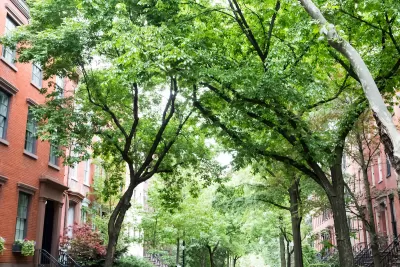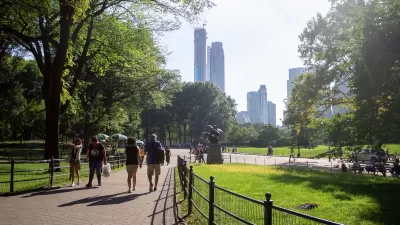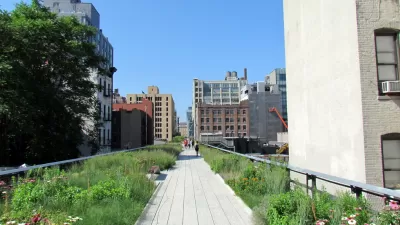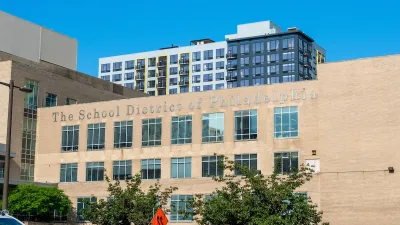More evidence that access to green spaces and walkable communities improve public health outcomes.

New research from the University of Maryland reveals that access to neighborhood green spaces and walkability contribute to different health outcomes for residents, according to an article by Annie Krakower in Maryland Today.
The study analyzed walkability and aesthetic data alongside health information to understand how the built environment impacts health among siblings and twins. “After examining records from nearly 2 million people, including 1 million siblings and 14,000 identical and fraternal twins, the team found that across all three samples, positive built environment characteristics were associated with 15-20% reductions in obesity and diabetes rates.”
The results show that green streets, sidewalks, crosswalks, and mixed-use development encourage more physical activity. “Future studies could also shine a light on how factors like income inequality and unequal access to desirable neighborhoods—along with modifiable built environment features— impact health.” Next, the researchers plan to examine data from Washington, D.C. to assess the impacts of other factors like gentrification and segregation on neighborhood population health.
FULL STORY: Walkability in Neighborhoods Linked to Health, Study of Siblings Shows

Alabama: Trump Terminates Settlements for Black Communities Harmed By Raw Sewage
Trump deemed the landmark civil rights agreement “illegal DEI and environmental justice policy.”

Planetizen Federal Action Tracker
A weekly monitor of how Trump’s orders and actions are impacting planners and planning in America.

The 120 Year Old Tiny Home Villages That Sheltered San Francisco’s Earthquake Refugees
More than a century ago, San Francisco mobilized to house thousands of residents displaced by the 1906 earthquake. Could their strategy offer a model for the present?

In Both Crashes and Crime, Public Transportation is Far Safer than Driving
Contrary to popular assumptions, public transportation has far lower crash and crime rates than automobile travel. For safer communities, improve and encourage transit travel.

Report: Zoning Reforms Should Complement Nashville’s Ambitious Transit Plan
Without reform, restrictive zoning codes will limit the impact of the city’s planned transit expansion and could exclude some of the residents who depend on transit the most.

Judge Orders Release of Frozen IRA, IIJA Funding
The decision is a victory for environmental groups who charged that freezing funds for critical infrastructure and disaster response programs caused “real and irreparable harm” to communities.
Urban Design for Planners 1: Software Tools
This six-course series explores essential urban design concepts using open source software and equips planners with the tools they need to participate fully in the urban design process.
Planning for Universal Design
Learn the tools for implementing Universal Design in planning regulations.
Clanton & Associates, Inc.
Jessamine County Fiscal Court
Institute for Housing and Urban Development Studies (IHS)
City of Grandview
Harvard GSD Executive Education
Toledo-Lucas County Plan Commissions
Salt Lake City
NYU Wagner Graduate School of Public Service





























